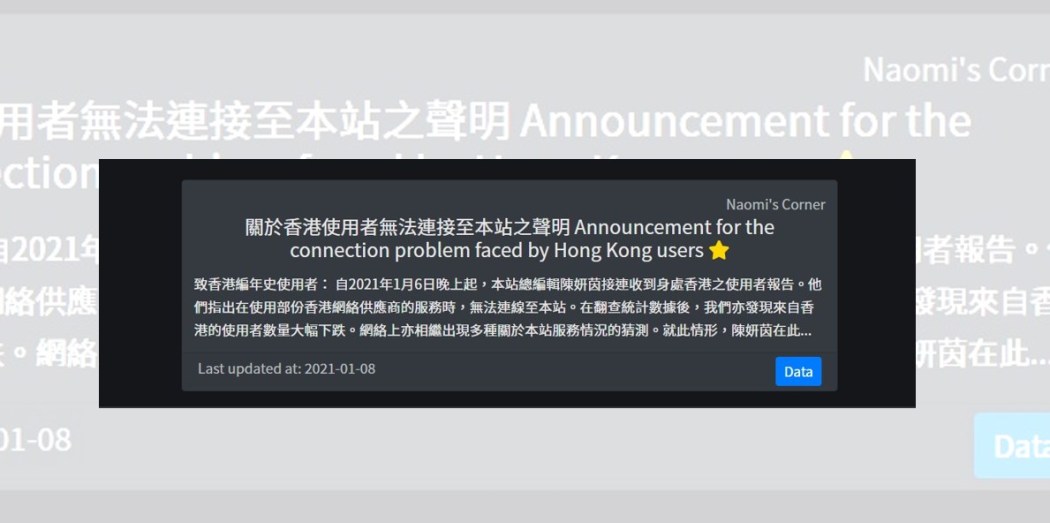Hong Kong Broadband Network (HKBN) has admitted that it has blocked an anti-government website in order to comply with the national security law.
Over the weekend, local media cited sources as saying that the police had ordered the city’s major telecoms providers to block access to the HK Chronicles.

The move marks the first time the force has used its powers under the security law to block access to online content, bypassing the city’s courts.
“We have disabled the access to the website in compliance with the requirement issued under the National Security Law,” an HKBN spokesperson told HKFP on Thursday. They did not give further details but said the action was taken on Wednesday afternoon.
On Monday, HKBN denied it had blocked the site, yet some customers confirmed to HKFP that they could not access it.
Other users of the site had reported problems accessing the site since last Wednesday, according to a statement by its operator who goes by the name Naomi Chan: “After discussing and investigating with our supporters, we found that some ISPs of Hong Kong [have] deliberately dropped any connection to our servers… resulting in an inability to access our content.” a Thursday statement from Chan read. “Some of the websites that shares the same IP address [were] also affected.”
HKChronicles had gathered information during the 2019 anti-extradition protests and operated as a pro-democracy doxing platform, revealing the personal information of police officers and pro-Beijing supporters. Article 43 of the security law provides the police with powers to order a person or service provider to delete or assist in the removal of information published online in the interests of protecting national security.

Telecom firms who have effectively blocked user-access to the site include several of the city’s major providers including Smartone and China Mobile Hong Kong.
In June 2020, Beijing inserted national security legislation directly into city’s mini-constitution – bypassing the local legislature – following a year of pro-democracy protests and unrest. It criminalised subversion, secession, foreign interference and terrorist acts, which were broadly defined to include disruption to public transport and other infrastructure. The move gave police sweeping new powers, alarming democrats, civil society groups and trade partners, as such laws have been used broadly to silence and punish dissidents in China.
China Mobile, Smartone, PCCW and the police did not respond to requests for comment.
Support HKFP | Policies & Ethics | Error/typo? | Contact Us | Newsletter | Transparency & Annual Report | Apps
Help safeguard press freedom & keep HKFP free for all readers by supporting our team
























